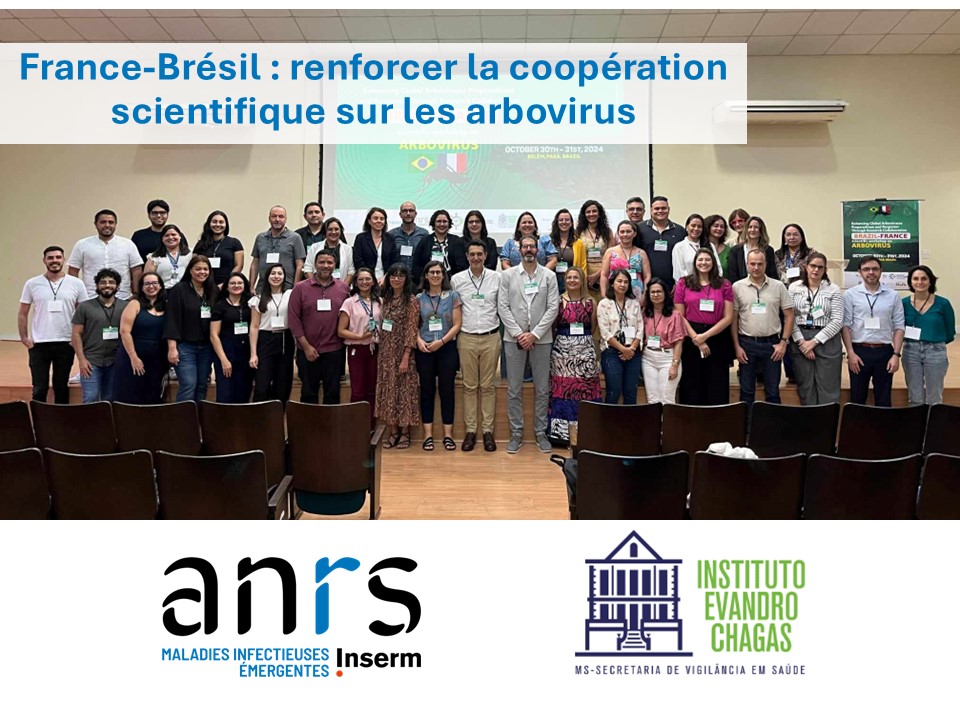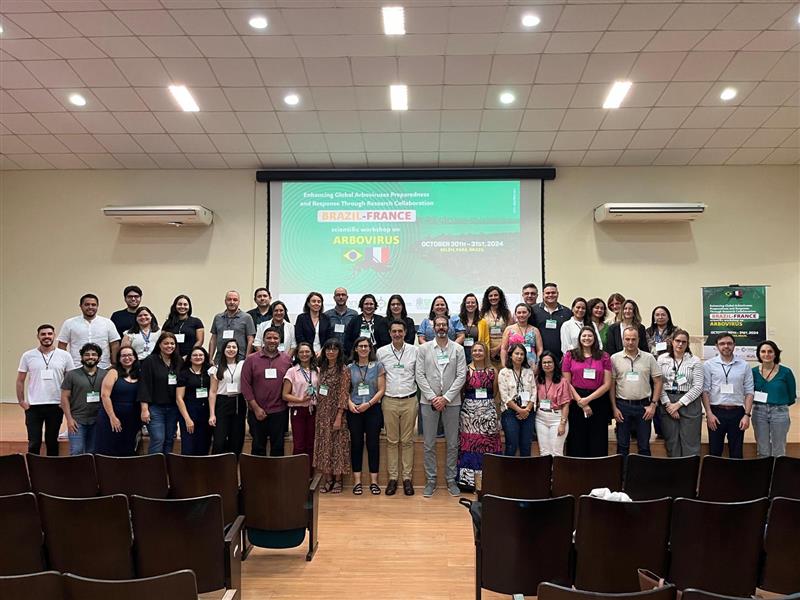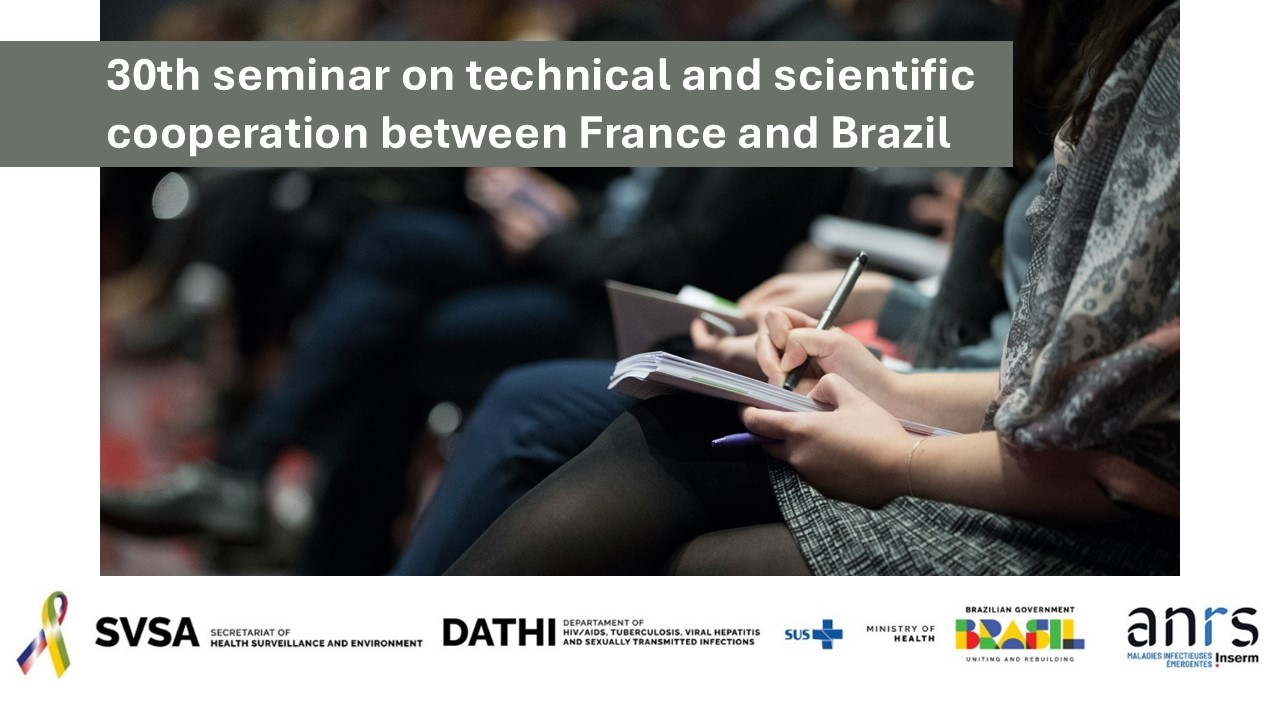
France-Brazil: strengthening scientific cooperation on arboviruses
On October 30 and 31, 2024, a Franco-Brazilian workshop on “Enhancing Global Arboviruses Preparedness and Response Through Research Collaboration” was held in Belém, Brazil.
Last updated on 04 December 2024
Scientific cooperation on arboviruses

A Franco-Brazilian workshop on arboviruses was held in Belém, Brazil, on October 30 and 31, 2024. Organized by the Instituto Evandro Chagas (Secretariat of Sanitary and Environmental Surveillance, Brazilian Ministry of Health) and the ANRS Emerging Infectious Diseases (ANRS MIE), with the support of the French Embassy in Brazil and in partnership with the ArboFrance network, the theme of the event was “Enhancing Global Arboviruses Preparedness and Response Through Research Collaboration”.
Arboviruses: a global health priority for Brazil and France
Arboviruses, such as dengue fever, chikungunya, Zika and Oropouche, represent a growing threat, exacerbated by factors such as climate change and rapid urbanization. The Amazon basin, which also includes French Guiana, is particularly vulnerable to the emergence of these diseases. It is therefore a strategic site for studying these viruses and anticipating future health crises in a coordinated fashion.
The One Health approach, which links human, animal and environmental health, is crucial in this context. Brazil and France, with their complementary expertise, are mobilizing to share knowledge and develop joint projects. These efforts are all the more important in the recent context, which has seen a very high number of cases of dengue fever and the spread of the Oropouche epidemic in Brazil.
The “Enhancing Global Arboviruses Preparedness and Response Through Research Collaboration” workshop was part of this drive to strengthen ANRS MIE’s collaborations with Brazil in the field of emerging infectious diseases, and arboviruses in particular. Bringing together 60 Brazilian and French researchers on site, and 35 researchers online, this event provided an opportunity to discuss potential synergies between French and Brazilian research networks, and to pave the way for the design of joint national and international projects addressing the global health issues raised by arboviruses.
A workshop between science and action: state of play and collaborative perspectives
Over two days, scientific presentations from France and Brazil provided an overview of current projects, recent discoveries and challenges in the field of arbovirology, with a view to finding innovative solutions.
The first day was devoted to in-depth discussions on the entomology and genomics of arboviruses and their vectors, which are still little studied. It also included a special session on the recent outbreak of the Oropouche virus. On the second day, a collaborative workshop examined concrete prospects for collaboration, with proposals for partnership research projects responding to identified priorities and needs. The workshop concluded with a technical visit to IEC’s NB3 laboratory. The Arbovirology Section of the IEC, a Pan American Health Organization (PAHO/WHO) collaborating center since the 1980s, is a leader in research on emerging and re-emerging arboviruses, contributing since 1954 to the advancement of knowledge and responses to these diseases.
Structuring France-Brazil cooperation: concrete actions
The workshop identified the first concrete proposals for structuring France-Brazil cooperation on arboviruses:
- Creation of a Franco-Brazilian working group or network dedicated to arboviruses, fostering regular scientific exchanges;
- Drafting of a joint project to be submitted in the short term to calls for projects;
- Development of an exchange and training program for young researchers from both countries, promoting skills transfer and capacity building.
Research and innovation for a global response to arboviruses
The Franco-Brazilian workshop on arboviroses has laid a solid foundation for extended and sustainable cooperation, aligning scientific research, innovation and preparedness for future health crises. The initiatives that emerge from this collaboration will help not only to protect local populations, but also to strengthen global health security in the face of these growing threats, not least by highlighting the Amazon as an important focus for work on this subject.
The year 2025 will see the organization of a France-Brazil season, which will be a further opportunity to intensify this collaborative dynamic in the field of health.

